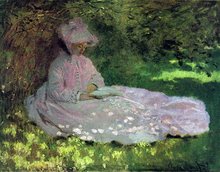* * * Death as the Narrator * * *
A intriguing literary tool, providing powerful
insights into human nature while still being
(somewhat) detached from human follies (“I guess
humans like to watch a little destruction”).
A intriguing literary tool, providing powerful
insights into human nature while still being
(somewhat) detached from human follies (“I guess
humans like to watch a little destruction”).
I found everything about this book to be captivating – the narrator, the way the chapters were broken up, the use of the * * * breaks * * * to further explain detail, but mostly the characters. I grew to love the characters – some, of course, being easier to love than others – Hans, the mayor’s wife, Rudy, Liesel and Max, and even Rosa – who stood by her husband in his quest to do the right thing.
I marked up much of this book. I loved the way the author described everyday, mundane things – using unique adjectives, using adjectives in direct opposition to what is being described, or giving inanimate objects movement. Examples:
“shivering snow,” “chips of rain,” “He smiled loudest… ,” “, shivered like the future,”
“A gang of tears trudged from her eyes… ,” pg. 28
“…due primarily to the brute strength of the man’s gentleness… ,” pg. 36
“Hans Hubermann wore a face with the shades pulled down. ,” pg. 63
“The horizon was the color of milk. Cold and Fresh. ,” pg. 175
“[Liesel could…] taste the human flavor of [Max’s] words. ,” pg. 218
“The words landed on the table and positioned themselves in the middle. ,” pg. 330
“…she woke up tasting the sound of he accordion in her ears. ,” pg. 358
“Rudy’s voice reached over and handed Liesel the truth. For a while, it sat on her shoulder, but a few thoughts later, it made its way to her ear. ,” pg. 364
“When [Papa] looks at me and smiles and breathes, I hear the notes. ,” pg. 527
I’ve always been fascinated with WWII, and greatly angered by it, as well. Each time I study it, read about it, or whatever, I think of three questions: 1. What causes that kind of hatred against an entire group of people (slaves in America, the Civil Rights movement, etc.)? 2. How can that many people be influenced by that kind of hatred? 3. What would I have done if I were a German during this time? I hope I would have been like Hans – disgusted with what I saw and wanting to do the right thing, no matter the risk. Another thing that amazes me about WWII is what people could live through. Max spent months locked up in a house, never going outside, afraid for his life – but yet, he was living.
Death gave us a lot of information in advance, which added to the bitterness of the story (“Of course, I’m being rude. I’m spoiling the ending… ,” pg. 243). Rudy’s a great example. Death foretold what would happen to Rudy before we were done learning to love him. After knowing what happened to Rudy, each moment he spent with Liesel was bittersweet for the reader.
My final question is this: What color will everything be at that moment when [death] come[s] for [me]?

3 comments:
I think Rosa was one of the most interesting characters to me. She softened so much throughout the book. I loved the way she accepted Max immediately despite the extreme danger. It was such a surprise for her character in many ways- and yet I think it brought out her true character.
The way Rosa silently accepted the fact that Max would be staying with them was so (apparently) out of character. I think that she had buried her true character in her roughness, but you're right, this brought out her true character.
KT,
What an awesome review! I loved the quotes you selected, the way you phrased things (Death foretold . . . Rudy's . . . before we were done learning to love him) and your final question--colors when death comes--Wow! Your review was a literary piece in an of itself.
--Karen
Post a Comment